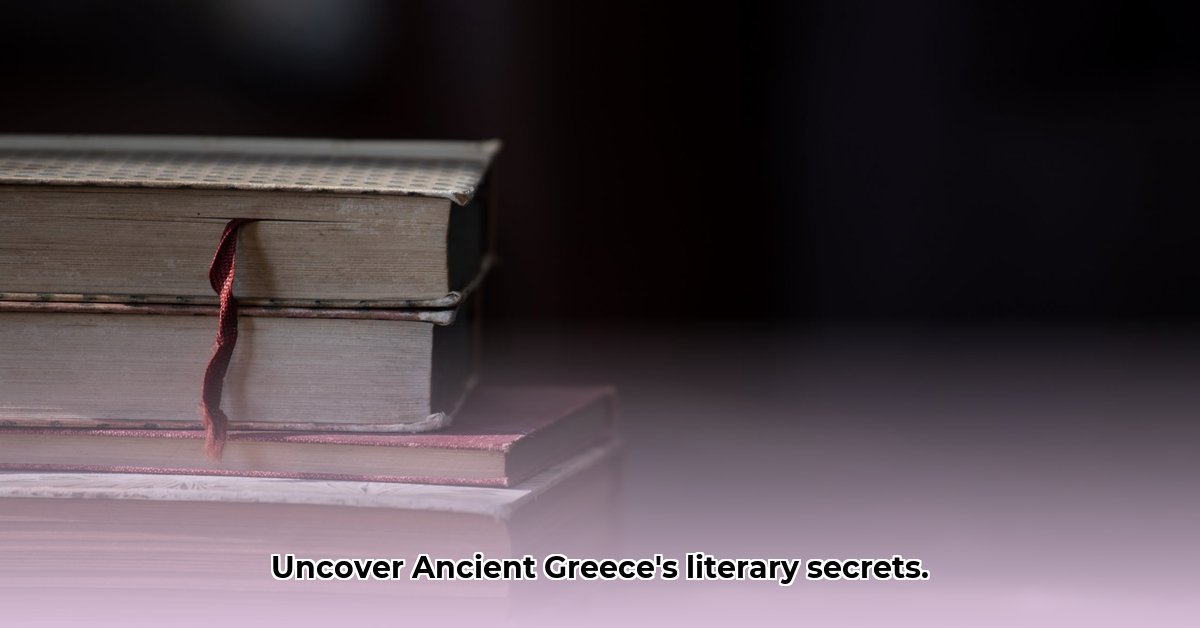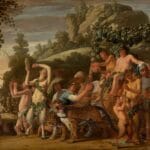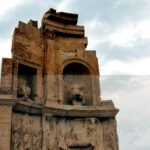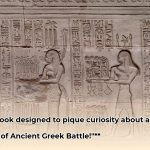Embark on a journey through ancient Greece, the cradle of Western civilization, and uncover the timeless stories that have shaped our world. For a better understanding of the geographical context, see this helpful guide on Ancient Greece geography. Ancient Greek literature is more than just old books; it’s a vibrant tapestry of epic adventures, profound tragedies, insightful philosophies, and uproarious comedies. This guide invites you to explore this rich literary landscape, meet the master storytellers, and understand how their works continue to resonate with us today, inspiring modern novels, films, and even our political ideals.
The Ancient Greek Literary Tapestry: Weaving a Legacy Through Time
Before the written word, stories were passed down through generations, a vibrant oral tradition that formed the bedrock of Greek literature. Homer’s Iliad and Odyssey, epic poems of gods, heroes, and perilous journeys, not only entertained but also shaped the Greek worldview. These were not fixed texts, but living narratives, evolving with each retelling. But how did these constant retellings shape the original stories? The advent of writing marked a crucial turning point, preserving these tales and enabling wider dissemination.
The Bards: Keepers of the Flame
Imagine the bards, skilled storytellers who served as the collective memory of their communities. They didn’t just repeat stories; they interpreted and adapted them, ensuring their relevance. To what extent did the bards alter these narratives? What nuances were lost, and what new meaning was gained?
The Athenian Golden Age: Where Drama, Philosophy, and Democracy Converged
The Classical period (500 to 323 BC) witnessed an explosion of creativity in Athens. Tragedy arose, exploring the depths of human suffering in the works of Aeschylus, Sophocles, and Euripides. These plays, performed at religious festivals, offered profound reflections on the human condition. Comedy, with Aristophanes and Menander, used humor to satirize society and challenge authority. Simultaneously, philosophers like Plato and Aristotle laid the foundations of Western thought through their dialogues and treatises. How did this unique blend of artistic and intellectual pursuits shape Greek society?
The Enduring Impact of Greek Philosophy
The influence of Plato and Aristotle extended far beyond philosophy. Their ideas permeated Greek society, shaping its political discourse and social structures. In what specific ways did these philosophical concepts inform the themes and narratives found in Greek literature?
The Literary Pantheon: Meeting the Immortal Storytellers
Let’s meet the titans of Greek literature. Homer, the legendary author of the Iliad and Odyssey, crafted tales of gods, heroes, and epic voyages. Aeschylus, Sophocles, and Euripides plumbed the depths of human existence through their tragic plays. Aristophanes wielded satire as a weapon against injustice and hypocrisy. Plato, through his dialogues, challenged conventional wisdom and explored profound philosophical questions. Aristotle, a polymath of unparalleled scope, invented logic, rhetoric, and ethics, leaving an enduring legacy on Western thought.
Unpacking the Homeric Epics: A Journey Through Values and Beliefs
Homer’s Iliad and Odyssey are more than just captivating adventure stories. They are windows into the values, beliefs, and social structures of ancient Greece. How did these epics contribute to the formation of a distinct Greek cultural identity?
The Evolving Narrative: The Dynamic World of Greek Literary Genres
Greek literature was not a static entity; it was constantly evolving, with genres transforming and adapting to changing societal needs. Epic poetry gave way to lyric poetry, emphasizing personal emotions, as exemplified by Sappho’s passionate verses. Tragedy became more sophisticated, exploring complex moral dilemmas and psychological depths. Comedy diversified, with Old Comedy’s boisterous satire giving way to New Comedy’s focus on domestic life. History emerged as a distinct genre, with Herodotus and Thucydides seeking to document and understand the events of their time. How did these literary transformations reflect broader shifts in Greek society and culture?
The Lyric Voice: Exploring the Landscape of Emotion
Lyric poetry offered a more intimate and personal voice compared to the grand narratives of epic poetry. How did this shift in perspective influence the themes, styles, and emotional range of Greek literature?
The Hellenistic Age: A Fusion of Cultures and Ideas
The Hellenistic period (323-31 BC) saw Greek culture spread throughout the Mediterranean world, blending with other traditions and giving rise to new forms of artistic and intellectual expression. Koine Greek, a common language, facilitated the dissemination of Greek literature and ideas. Roman literature, in particular, owes a profound debt to its Greek predecessors, borrowing themes, forms, and stylistic conventions.
Koine Greek: A Linguistic Bridge
The adoption of Koine Greek as a common language fostered cultural exchange and literary innovation across the Hellenistic world. How did this linguistic unification impact the development and transmission of Greek literature?
The Enduring Echoes: Why Ancient Greek Literature Still Matters
The influence of ancient Greek literature is profound and far-reaching, shaping modern literature, art, philosophy, and political thought. The ideas about democracy, debated in the Athenian assembly, continue to inform our political systems. The questions of justice, morality, and the human condition, explored by ancient Greek writers, remain central to our own concerns. By studying ancient Greek literature, we embark on a journey into our shared cultural history, gaining a deeper understanding of ourselves and the world around us.
The Timeless Resonance of Ancient Greek Themes
The themes explored in ancient Greek literature – love, loss, revenge, ambition, and the search for meaning – are as relevant today as they were thousands of years ago. How do these timeless themes resonate with contemporary audiences, and what can we learn from the way they were explored in ancient Greek literature?
A Concise Guide to Ancient Greek Literary Periods
| Period | Approximate Dates | Key Authors & Genres | Defining Characteristics |
|---|---|---|---|
| Archaic | 800-500 BC | Homer (Epic poetry: Iliad, Odyssey), Hesiod (Didactic poetry: Works and Days, Theogony), Sappho, Alcaeus (Lyric poetry) | Predominantly oral tradition; emergence of epic and lyric poetry; focus on myth, legend, and heroic ideals. |
| Classical | 500-323 BC | Aeschylus, Sophocles, Euripides (Tragedy), Aristophanes, Menander (Comedy), Herodotus, Thucydides, Xenophon (History), Plato, Aristotle, Socrates (Philosophy), Isocrates, Demosthenes (Oratory). | Flourishing of drama (tragedy and comedy); development of prose genres (history, philosophy, oratory); focus on reason, humanism, and civic engagement. |
| Hellenistic | 323-31 BC | Callimachus, Apollonius Rhodius, Theocritus (Poetry), Menander (New Comedy), Polybius, Plutarch (History) | Spread of Greek culture throughout the Mediterranean; rise of Alexandria as a cultural center; focus on erudition, personal experience, and emotional expression. |
The exploration of ancient Greek literature is a continuous process of discovery and interpretation. New perspectives and insights emerge constantly, enriching our understanding of this profoundly influential body of work. It serves not just as a subject of academic study but as a testament to the enduring power of storytelling and the human imagination.
Discovering the Persistent Legacy of Ancient Greece
The profound impact of ancient Greek literature reverberates throughout history, shaping art, philosophy, drama, and political thought. It remains a vibrant and influential legacy that continues to transform our world.
Orality and Early Greek Literature: Shaping Narrative and Style
How did the oral tradition influence the style and content of early Greek literature? In the absence of writing, early Greek storytelling relied on performance, with bards reciting and adapting narratives for their audiences. This emphasis on memorability, rhythm, and repetition led to the development of formulaic language, stock phrases, and recurring motifs. The Iliad and Odyssey, for example, are filled with epithets (“swift-footed Achilles”) and repeated scenes (feasts, battles, ship launchings) that aided both the bard’s memory and the audience’s comprehension. Moreover, these epics served as vehicles for transmitting cultural values and beliefs, solidifying them through the power of repeated performance.
The Bard’s Multifaceted Role: Shaping and Transmitting Cultural Narratives
The bard was not simply a reciter of tales but a skilled interpreter and shaper of cultural narratives, adapting them to resonate with specific audiences and social contexts. What techniques did bards employ to ensure that their stories were both engaging and memorable? How did they balance the need for fidelity to tradition with the desire to create new and innovative performances?
The Rise of Writing: A Transformative Shift
The invention of the Greek alphabet marked a transformative shift in the history of literature, enabling the creation of permanent, written texts. While the oral tradition did not disappear overnight – indeed, many works continued to be recited even after they were written down – the advent of writing allowed for greater complexity, nuance, and revision. Characters could be developed in greater depth, plots could become more intricate, and authors could reflect more deliberately on their craft. Although the emphasis on performance diminished somewhat, the legacy of the oral period remained a powerful influence, shaping the style and structure of early Greek literature.
From Oral Performance to Written Text: Transformations in Structure and Style
The advent of writing brought about significant changes in the structure and style of Greek literature. How did written texts differ from their oral counterparts? What new possibilities did writing open up for authors?
Genre Development and the Echoes of Orality
The emergence of distinct literary genres in ancient Greece – epic poetry, lyric poetry, tragedy, comedy, history, philosophy – reflected the evolving needs and interests of Greek society. However, these genres also bore the imprint of their oral roots. Epic poetry, for example, retained its oral character through its lengthy narratives, formulaic language, and focus on heroic deeds. Lyric poetry, with its emphasis on personal expression and emotional intensity, showed the influence of song and musical performance. Tragedy, which evolved from earlier forms of choral performance, explored profound moral and philosophical questions through dramatic dialogue and stylized movement. Understanding the complex interplay between orality and literacy is crucial for appreciating the richness and diversity of ancient Greek literature.
Approaching Ancient Greek Texts: A Journey of Linguistic and Cultural Exploration
Engaging with ancient Greek literature is a journey through history, language, and culture, revealing the beauty, power, and enduring relevance of a vibrant civilization.
Key Takeaways:
- The oral tradition was the dominant means of disseminating information and shaping cultural values in early Greece, exerting a profound influence on the style and structure of early Greek literature.
- Memorability was of paramount importance, leading to the use of formulaic language, repetitive structures, and recurring motifs in oral epic and lyric poetry.
- The transition to writing was a gradual process, with oral performance and written text initially coexisting and even supplementing one another.
- The adoption of writing allowed for longer, more complex narratives, greater nuance in character development, and more deliberate reflection on the craft of writing, creating a shift in the structure and complexity of literary works.
- Distinct literary genres, including epic and lyric poetry, tragic drama, and historical prose, each revealed unique aspects of the oral tradition’s enduring influence.
The Evolution of Greek Dialects and Their Impact on Literary Style
Key Takeaways:
- Ancient Greek was not a monolithic language but a diverse family of dialects, each with its own unique characteristics.
- Geographic location, cultural exchange, and historical development shaped the evolution of these dialects.
- These dialectal differences influenced the style, meter, and vocabulary of ancient Greek literature.
- Understanding the nuances of ancient Greek dialects unlocks deeper levels of meaning and appreciation in classic texts.
- The eventual emergence of Koine Greek as a common language facilitated communication and cultural exchange throughout the Hellenistic world.
A Tapestry of Tongues: The Diversity Inherent in Ancient Greek
Ancient Greek was not a single, unified language but rather a collection of distinct dialects, including Attic, Ionic, Doric, and Aeolic, each shaped by its own unique geographic, cultural, and historical factors. Imagine isolated island communities fostering unique linguistic traits, for instance, which differed significantly from those on the mainland. How did this rich linguistic diversity affect the development and character of Greek literature?
The Influence of Dialect: Unlocking Deeper Levels of Meaning
Understanding the nuances of ancient Greek dialects enhances our appreciation for the richness and complexity of the language and provides crucial insights into the social, cultural, and historical contexts in which literary works were produced. How can we apply this knowledge to better understand and interpret classic texts?
Phonology, Morphology, and More: The Nuts and Bolts of Dialectal Variation
Dialectal differences in ancient Greek manifested themselves in various ways, including pronunciation (phonology), word formation (morphology), sentence structure (syntax), and vocabulary (lexicon). The Attic dialect, for example, gradually lost the initial “h” sound in certain words, a change that affected both the sound and rhythmic qualities of the dialect. How did the loss of “h” sounds affect the metrical structure of verses written in Attic Greek?
Unlocking Complexity: The Key of Dialectal Nuances
By studying the phonology, morphology, syntax, and lexicon of ancient Greek dialects, we gain access to a deeper and more nuanced understanding of its literary works.
Literary Styles: Tracing Dialectal Fingerprints
Linguistic variations across the Greek dialects exerted a significant influence on literary styles. Homer’s epics, composed in the Ionic dialect, possess a majestic and elevated style that is closely linked to the distinctive features of that form of the language. The Doric dialect, spoken primarily in Sparta and other parts of the Peloponnese, was often used in choral lyric poetry, imbuing it with a sense of solemnity and grandeur. How did the deliberate choice of dialect reflect the stylistic intentions of ancient Greek authors?
Exploring the Interplay Between Dialect and Literary Style
The choices of dialects had a profound impact on the style and tone of ancient Greek literary works. Can you identify specific examples of how dialect influences style in different genres and periods?
The Rise of Koine Greek: A Force for Linguistic Unification
Koine Greek, also known as “common Greek,” emerged as a lingua franca during the Hellenistic period, facilitating communication and cultural exchange across diverse regions of the Mediterranean world. Evolving primarily from the Attic dialect, Koine Greek became a widely spoken and written language, blending elements from various regional dialects to create a new and relatively unified form of Greek.
Understanding the Influence of Koine Greek: Bridging Cultural Gaps
The rise of Koine Greek as a common language fostered cultural exchange and literary innovation throughout the Hellenistic world. How did this linguistic unification impact the development, transmission, and reception of Greek literature?
The Enduring Legacy: Echoes in Modern Greek
Traces of older dialects survive in Modern Greek, offering valuable insights into the language’s rich and complex history. These linguistic echoes reflect the ever-changing social, cultural, and historical environments in which Greek language and literature have evolved, providing crucial clues for understanding the multifaceted tapestry of the language.
Discovering the Echoes of Ancient Dialects in Modern Greek
By studying the structure, vocabulary, and idiomatic expressions of modern Greek, we can trace the legacy of its ancient dialects and gain a deeper appreciation for the continuity of the Greek language and its literary traditions.
From Ancient Texts to Modern Understanding: Exploring Further
Remember that you are engaging with a living language, shaped by a vibrant civilization. The exploration of the evolution of Greek dialects and their impact on literary styles connects the past with the present, allowing us to better appreciate the beauty and power of ancient Greek literature.
Religious Festivals and the Birth of Greek Drama: A Dionysian Connection
Key Takeaways:
- The Dionysia festival, a vibrant celebration of the god Dionysus, played a pivotal role in the development and evolution of Greek drama.
- What began as humble rural rituals honoring Dionysus eventually evolved into the grand City Dionysia in Athens, a defining cultural event of the ancient world.
- This evolution reflects broader societal shifts in ancient Greece, from agrarian communities focused on fertility and harvest to a more urbanized and sophisticated society centered on civic life and artistic expression.
- The competitive nature of the City Dionysia spurred dramatic innovation, leading to the rise of renowned playwrights and the creation of some of the greatest dramatic works in world literature.
- The integration of religious rituals, choral performances, and dramatic narratives created a unique and transformative theatrical experience that captivated and inspired ancient audiences.
- The enduring legacy of the Dionysia has profoundly shaped Western theatre traditions, leaving an indelible mark on the development of dramatic art.
From Rural Rites to City Spectacle: Charting the Evolution of the Dionysia
The Dionysia, initially a series of localized rural celebrations honoring Dionysus, gradually transformed into the City Dionysia in Athens, a grand and elaborate festival that mirrored the growing power, wealth, and cultural influence of Athens. What began as small-scale, community-based events grew into a city-wide celebration, reflecting Athens’ increasing prominence as a cultural and political center of the ancient world.
Tracing the Roots of Greek Drama: From Ritual Origins to Theatrical Art
Understanding the origins of Greek drama in the Dionysia festival provides crucial insights into the cultural context of ancient theatrical practices and performances. How did these rural rites, rooted in religious belief and agricultural cycles, transform into the sophisticated theatrical spectacles that characterized Athenian drama?
Dionysus: God of Wine, Theatre, and Transformation of the Human Condition
Dionysus, the Greek god associated with wine, fertility, theatre, and ecstatic experiences, exerted a profound influence on every aspect of the Dionysia, underscoring the sacred nature of the proceedings and the transformative power of dramatic performance. The festival was not merely a form of entertainment but a deeply religious experience, offering participants a chance to connect with the divine and explore profound aspects of the human condition.
Exploring the Cult of Dionysus: Ecstasy, Transformation, and Catharsis
The worship of Dionysus was characterized by ecstatic rituals, transformative experiences, and a focus on the blurring of boundaries between the human and the divine. How did these elements influence the development of Greek drama, and what role did they play in shaping the dramatic experience for ancient audiences?
The Birth of Tragedy: From Dithyrambs and Choral Odes to Dramatic Narratives
The Dionysia served as a fertile ground for dramatic innovation, fostering the transformation of dithyrambs – ancient choral hymns sung in honor of Dionysus – into structured dramatic forms. Playwrights, like Aeschylus, Sophocles, and Euripides, pushed the boundaries of theatrical expression, honing their skills and competing for recognition at the City Dionysia. How did the competitive atmosphere of the festival contribute to the exceptional creativity and dramatic innovation that characterized classical Athenian theatre?
The Chorus in Greek Tragedy: A Bridge Between Actors, Audience, and the Gods
The chorus played a vital role in Greek tragedy, providing commentary on the action, expressing the emotions of the community, and serving as a bridge between the actors, the audience, and the realm of the gods. How did the chorus contribute to the dramatic effect of these plays, and what insights did it offer into the social and moral values of ancient Greek society?
Comedy’s Ascent: A Mirror Reflecting Athenian Society
While tragedy explored the depths of human suffering and moral complexity, comedy offered a satirical and often bawdy reflection of Athenian society. Old Comedy, exemplified by the plays of Aristophanes, fearlessly satirized Athenian politics, social customs, and prominent figures. New Comedy, which emerged in the Hellenistic period, shifted its focus to domestic themes, romantic entanglements, and the everyday lives of ordinary citizens, reflecting the evolving social and political landscape of ancient Greece.
Satire and Social Commentary in Greek Comedy: A Vehicle for Dissent
Greek comedy used satire as a tool for critiquing societal norms, exposing hypocrisy, and challenging political authority. How did this comedic tradition reflect the values, concerns, and anxieties of Athenian society?
A Lasting Legacy: The Enduring Influence of the Dionysia
The Dionysia’s unique combination of religious ritual, dramatic performance, and civic celebration laid the foundation for Western theatre, influencing the development of dramatic art for centuries to come. The festival’s enduring impact is unmistakable, forging a lasting link between religious devotion, artistic expression, and the exploration of the human condition.
Understanding the Enduring Legacy of the Dionysia: Inspiration for Generations
The Dionysia had a profound and far-reaching influence on the development of Western theatre. How can we trace its influence on contemporary theatrical practices, and what lessons can we learn from its unique combination of religious ritual and dramatic performance?
















